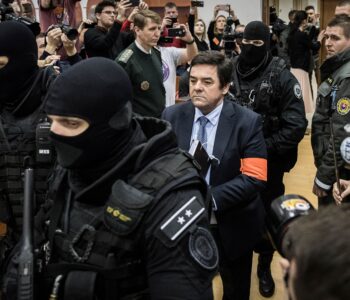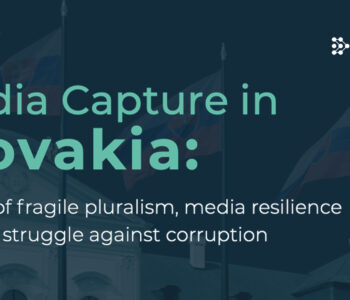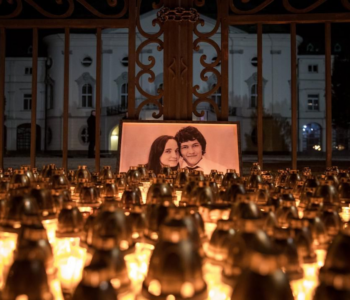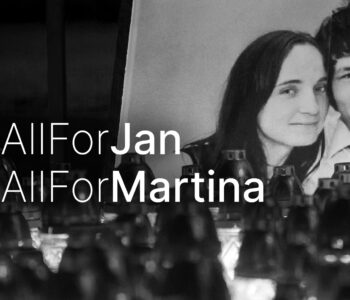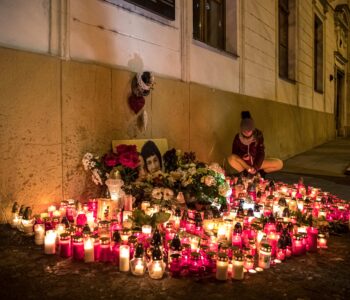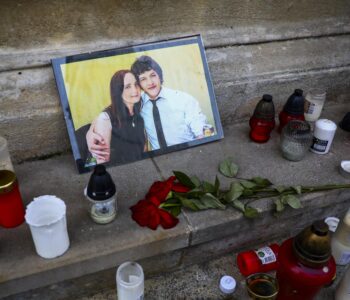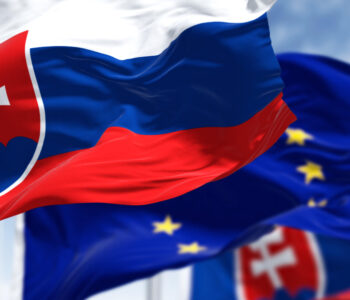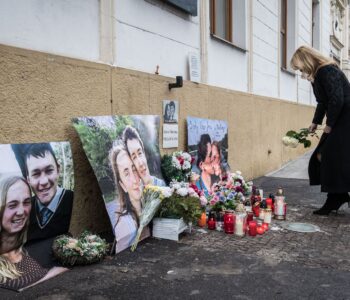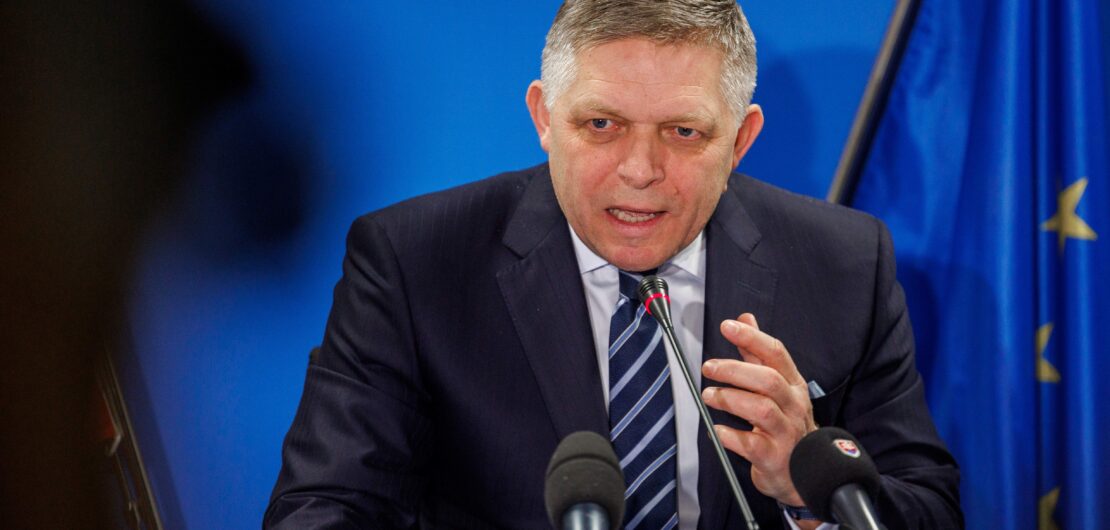 Library
Library
Slovakia: New PM rages against media while Culture Minister…
Slovakia: New PM rages against media while Culture Minister plans future of public service media
Robert Fico and his Smer party have returned to power in Slovakia. The politician who was forced to resign as prime minister after the murder of journalist Ján Kuciak in 2018 is back at the head of a new governing coalition creating deep unease among Slovakia’s journalists about the future for media freedoms and public service journalism.
On Sunday November 12, Fico published a ten minute video tirade against independent news organisations where he singles out TV Markiza, the dailies SME and Dennik N, and website Aktuality as ‘enemy media’.
Promising that he is “not a dog that only barks”, Fico then warns that TV Markiza’s advertising revenue will be at risk when he instructs his people in government to both “deal with the TV financially” and to “look into Markiza’s ‘monopolist behaviour’”.
On Monday November 13, Fico then issued a press release announcing the four news organizations are not welcome at the premises of the Government Office of the Slovak Republic adding that “We will review their access and work. Until then, they are uninvited guests.”
The new government had already signalled its intent by handing the ministry of culture, together with its media portfolio, to the Slovak National Party (SNS), which calls for the dissolution of public service media while also boycotting most traditional media.
The new Slovakian government is formed by a coalition of Smer, Hlas and SNS. Hlas is a new party, led by Peter Pellegrini, a former leading Smer politician who replaced Fico as prime minister, after Fico‘s forced resignation in 2018, until Smer was defeated in the 2020 elections. SNS are seen as right wing radicals with many of their newly elected members of parliament and candidates for government posts having made their reputations as stars of the disinformation scene including pro-Russian influencers, famous for spreading hoaxes and misinformation.
The new minister of culture is Martina Šimkovičová, a former TV anchor who was fired from the mainstream TV Markíza for racist comments in 2015. The following year she was elected to parliament on an anti-migration ticket and subsequently became a superstar of the pro-Russian disinformation scene. She is one of the main figures behind the SNS call for a ‘boycott of traditional media“. SNS ignore most of the interview requests and refuse to answer questions from the independent and critical media operating outside oligarch ownership. SNS refused access to journalists from the daily Sme, Denník N and Aktuality to their post-election press conference.
SNS, with support from Smer, promises to favour the disinformation media. Several of their politicians have stated that they could give exclusive access to information for websites known for their pro-Russian propaganda, some of which were banned for a short period at the beginning of the Russian invasion of Ukraine. A Smer friendly website, Ereport, (owned by Mr. Flašík, a former Smer campaign strategist) is usually allowed to ask the first question at press conferences of the new coalition.
Even more worrying is what the government may be planning for the public service media, Rozhlas a televízia Slovenska (RTVS). In 2017, SNS leader Andrej Danko called for the replacement of public service media with ‘state media’ before his party helped orchestrate the political capture of RTVS. The new chairman of the parliamentary media and culture committee, SNS MP Roman Michelko, campaigned to dissolve RTVS altogether. He recently confirmed for Aktuality that the official programme of the new government will include the dissolution of RTVS into two separate entities, Slovak Television and Slovak Radio, as they existed before 2011. Prime Minister Fico also speculated about the future of RTVS while introducing the new minister of culture, saying, “It is hard to talk about the Slovak Television and Slovak Radio as public service, because this institution has rarely fulfilled this role.”
Journalists fear that the split of RTVS could make it easier for the political parties to establish and divide political control over public broadcasting by appointing their allies onto the board and into senior positions. MP Michelko has admitted that they might nominate members of the boards of the two new institutions that will be in line with the political values of the governing coalition.
Smer itself is a populist party with pro-Russian sympathies, feeding off anti-immigrant sentiment that campaigned to end the delivery of military help to Ukraine. Fico makes no secret of being inspired by Viktor Orbán mimicking his anti-journalist rhetoric and calls to label NGOs as ‘foreign agents’.
Fico’s attacks on journalists include calling them “idiots“, “hyenas“ and “dirty anti-Slovak prostitutes“. Fico also blamed the media for his 2018 resignation, claiming reporters had unfairly connected him and his party to the murder of journalist Ján Kuciak and his fiancé, Martina Kusnirova. One theory at the time was that Italy’s Ndrangheta mafia may have sought to silence Kuciak because he had been working on a story exploring the connections between the mafia and Fico. The investigation subsequently prosecuted Marián Kočner (twice acquitted, but awaiting the results of an appeal) for the murders. Kočner was close to the oligarch Norbert Bodor and leaked communications between the two reveal them referring to Fico as ‘the boss’. At one point Fico and Bodor were charged with forming an organized criminal group, though the charges were later dropped by the Slovak general prosecution.
One more worrying development in the Slovak media market was announced just after the election. The oligarchic group Penta, has expanded its investments in the Slovak media to take over the largest daily tabloid newspaper, Nový Čas. The deal is still under review by the competition authority, but should it go through Penta will have a near monopoly on the Slovak tabloid newspaper market. Penta has been repeatedly accused of helping the Smer and Hlas parties by using their media to campaign against their political opponents. Over the last few years, Penta media published dozens of negative articles on the police and prosecutors to discredit investigations into Smer politicians and supporters for corruption or misuse of power.
In conclusion, it is clear that Slovak journalists can expect to face increased pressure and a government averse to accountable journalism. Under the previous Smer and SNS coalition government independent journalists were cast out of the public broadcaster, while dozens of investigative journalists were put under surveillance by corrupt police officials accused of being in the pay of Norbert Bodor. Leaked communications were used to discredit journalists and the persistent verbal attacks on critical journalists by Smer and SNS politicians created an atmosphere of threats and hostility in which the murder of Jan Kuciak and Martina Kusnirova became possible.
Nearly six years after their deaths Fico’s Sunday tirade against journalists will have shocked many but surprised few. Slovak journalists are once again bracing themselves for turbulent times.
This article was authored by Peter Hanak, journalist for the Slovak news site Aktuality.sk and author of IPI’s report ‘Media Capture in Slovakia: a story of fragile pluralism, media resilience and the struggle against corruption’. It was published by IPI as part of the Media Freedom Rapid Response programme

